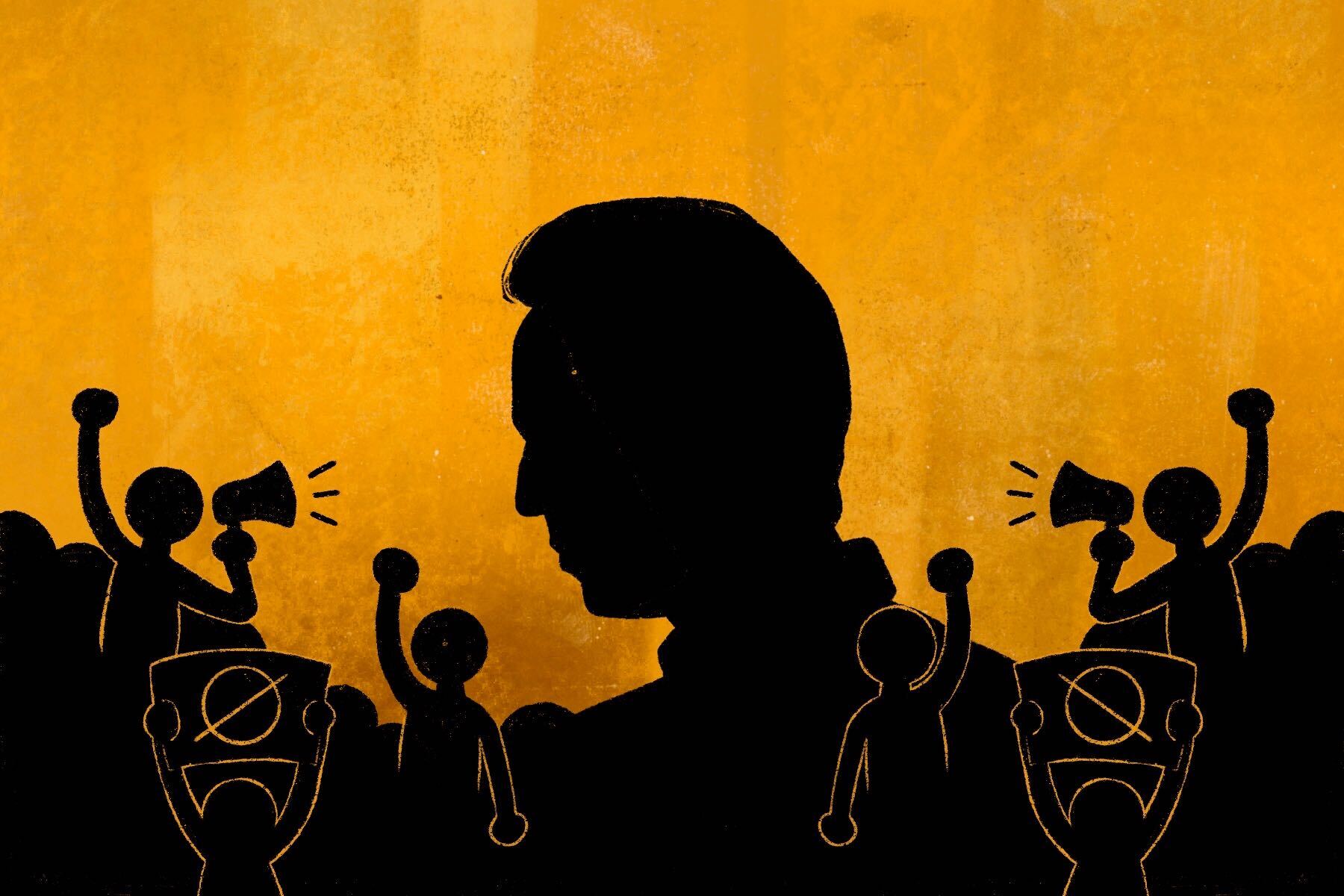Lin-Manuel Miranda, the Broadway legend once loved for his hit productions like “In the Heights,” is no longer a fan favorite. In recent weeks, he has faced backlash first for his Broadway hit “Hamilton” and then for his own quirky antics.
In July, the streaming platform Disney+ added a filmed performance of “Hamilton.” With “Hamilton” being so popular that there are year-long waitlists to get to see the musical live, Disney must have thought it was appeasing its audiences. Instead, it sparked controversy.
Across social media, people are saying that the play fails to hold the Founding Fathers accountable for their slaves and racism. Instead, they say “Hamilton” glorifies colonialism, focusing on love stories and battle, and not on the Black population, upon whose backs the U.S. is built.
“Hamilton” swept across the nation since its debut in 2015, and spread to other countries as well. I remember in high school, students would literally be rapping songs from the play in the hallway. “Hamilton” came to pervade my classroom when I took AP United States History. As a part of the curriculum, we listened to “Hamilton” songs all the time, to the point where I’d be trying to take a test and I’d hear the chorus singing “Alexander Hamilton” in my head.
On behalf of the New York Historical Society, my class was given the assignment to come up with a creative skit, song, rap or speech that dealt with a character from the play. As a part of this contest, some students would even get to see the play in person, and I just so happened to win the lottery to do so. Now, I mention all this because I saw firsthand how these “Hamilton” fans were full-on Beatlesmania over getting to go. The deafening screams of the decked-out fans for the old white men from colonial history was truly a testament to how beloved the play was.
Now, in the midst of the Black Lives Matter movement, the fanfare has died down. This makes sense: Certainly, the play has beautiful musical arrangements, clever lyrics, excellent acting and a compelling story; the problem is that a diverse cast does not compensate for the anti-diversity found in the actual history of the United States.
There is no mention of the slaves that Thomas Jefferson and George Washington had. There is no mention of the Three-Fifths Compromise or Alexander Hamilton’s position on it. As they sing, “Immigrants, we get the job done” and “We’ll never be free until we end slavery,” audiences today cheer, but these notions were absent from the conversations back in revolutionary America.
People tweeted out #CancelHamilton against Miranda, but in contrast to other canceled celebrities, he accepted fault and took responsibility for leaving slavery out of the script.
In fact, Miranda agreed with those saying that his work should have included slavery. “When you write a musical that brushes against sort of the origins of this country, it’s always going to be relevant,” he told NPR. “The fights we had at the [country’s] origin are the fights we’re still having … I’ve always said that slavery is the original sin of this country.” He added, “Hamilton – although he voiced anti-slavery beliefs –remained complicit in the system.”
He even mentioned the fact that he had a rap battle originally planned to show both sides of the debate, but ultimately chose to take it out. Clearly, the intent is there to address slavery, but the fact of the matter is that the entire show features songs praising Alexander Hamilton and depicting his life. Thus, audiences, and students like me, are shown a beautified, rosy image of Hamilton, which is not the entire truth.
Now, during the recent scrutiny of his musical, fans began to look into Miranda himself. He is a genuinely good person. For example, Miranda put on a 17-day performance of “Hamilton” to raise money to help Puerto Rico after Hurricane Maria. This ended up raising over $15 million dollars, which went toward helping the arts on his home island. On top of that, his interviews and interactions show him as a kind, joyous man who also loves ‘Weird’ Al Yankovic.
Despite his reputation and the current “Hamilton” backlash, people managed to find another aspect of him to focus on. They chose to fixate on a photo he uploaded of himself in 2018, showing him biting his lip.
While on one end he is being criticized for failing to discuss slavery and discrimination in “Hamilton,” he is also being made fun of for that picture. For instance, one TikTok video showed a teenage boy trying on outfits for a date, and for his last one he bites his lip. It then cuts to the photo of Miranda, and the viewer is not Rickrolled, but rather Lin-Rolled.
Another example is a video where a girl is texting her friend and says she saw a shark “lin” instead of fin. This then leads to a graphic of a shark with Miranda’s face on it. In the background, Miranda can be heard rapping a song from “Hamilton.”
In fact, so many of these types of videos were made and shared that Miranda actually saw some himself. He responded in a rap saying, “Bit my lip, ah s—, TikTok hates when I do that.” Clearly, they do hate it very much. Comment sections are flooded with requests for Lin to remove the photo, or at least never bite his lip like that again. Shockingly enough, more photos of him doing so continue to be dredged up.
Alright, last call! You don't have to go home but you can't stay here! Thanks @UTKtheINC and thanks to all of you! #WeAreFreestyleLoveSupreme https://t.co/lC7QEHdxTh pic.twitter.com/aVeoG7GkRr
— Lin-Manuel Miranda (@Lin_Manuel) July 18, 2020
It is interesting to see that Miranda is facing two forms of backlash right now. One comes from a serious perspective, dealing with race issues and how his musical perpetuates the omission of Black suffering during colonial times, while idolizing the white men already on a pedestal in history. The other form of backlash is more mocking; it is going after Miranda himself, making fun of a pose that he made.
As evident from other influencers and cancel culture, the “Hamilton” discussion is likely to disappear with time. In fact, it already is gone from the headlines. People will become engrossed in the next hot button topic, leaving “Hamilton” the profitable musical it has always been. The image of Miranda, however, is more likely to remain in circulation as a meme. It is cemented in the public’s mind and projected in videos and jokes. Instead of looking at the musical or Miranda himself, maybe it is worth reprioritizing what is worthy of discussion and what should be let go, especially during a time where the Black Lives Matter movement is finally being heard.

















